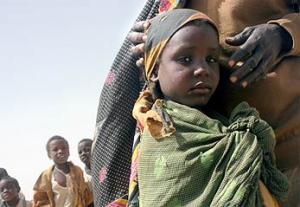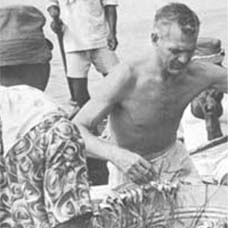December 18, 2004: Headlines: Directors - Bellamy: Children: United Nations: Unicef: Boston Globe: The world's broken promise to our children by Carol Bellamy
Peace Corps Online:
Peace Corps News:
Directors of the Peace Corps:
Carol Bellamy:
January 23, 2005: Index: PCOL Exclusive: Peace Corps Directors - Bellamy :
Carol Bellamy and the Peace Corps:
April 22, 2002: Headlines: Directors - Bellamy: Unicef: Children: United Nations: New York Times: Carol Bellamy - From City Hall to the World's Stage :
December 18, 2004: Headlines: Directors - Bellamy: Children: United Nations: Unicef: Boston Globe: The world's broken promise to our children by Carol Bellamy
 | The World's Broken Promise to our Children
Former Director Carol Bellamy, now head of Unicef, says that the appalling conditions endured today by half the world's children speak to a broken promise. Too many governments are doing worse than neglecting children -- they are making deliberate, informed choices that hurt children. Read her op-ed and Unicef's report on the State of the World's Children 2005. |
The world's broken promise to our children by Carol Bellamy

The world's broken promise to our children by Carol Bellamy
The world's broken promise to our children
By Carol Bellamy | December 18, 2004
STANDING ON THE side of a dusty road in northern Uganda earlier this year, I watched a trail of children on a desperate journey. The children were some of the "night commuters" of northern Uganda, the thousands of girls and boys who leave their homes every day at dusk to escape abduction by the Lord's Resistance Army.
Recalling the chilling image of children walking away from their mothers and fathers to camp out in the city until morning, I feel the same outrage that I experienced while visiting Beslan, Russia, where militants viciously used children to bring attention to their cause.
Surely these two phenomena -- the abduction of thousands of children to become soldiers and sex slaves in Uganda and the deliberate exploitation in Russia of the helplessness and beloved status of children -- are some of history's worst attacks on childhood.
Yet as tempting as it is to view such events as evil aberrations, they did not come out of nowhere. They came from a world that routinely exploits and neglects children. When governments allow children to be used in the commercial sex industry, to be swept up in the harshest forms of child labor, or to grow up without clean water, education, nutritious food or basic healthcare, they send an unspoken message that it is permissible to overlook the rights of children.
Today more than one billion children are suffering extreme deprivations from poverty, war, and HIV/AIDS. The specifics are staggering: 640 million children without adequate shelter, 400 million children without access to safe water, and 270 million children without access to basic health services. AIDS has orphaned 15 million children. During the 1990s alone, war forced 20 million children to leave their homes.
By adopting the 1989 Convention on the Rights of the Child, the nations of the world overcame cultural and religious differences to agree on standards to protect the lives of children. They embraced the idea that childhood refers not just to the time before adulthood, but to a separate and safe stage of life in which children can grow, play, and develop.
The appalling conditions endured today by half the world's children speak to a broken promise. Too many governments are doing worse than neglecting children -- they are making deliberate, informed choices that hurt children.
The severe threat to childhood posed by poverty, war, and AIDS is highlighted in UNICEF's flagship report "The State of the World's Children," which argues that the failure by governments to live up to the convention's standards causes permanent damage to children and in turn blocks progress toward human rights and economic advancement.
When atrocities against children catch our attention, the questions are quick to flow: How could this have happened? How could it have been prevented? How can we ensure that it will never happen again?
The answers do not come easily. But we can start by refusing to be outraged by one affront against children while ignoring others. If we decry the hostage-taking of children, we also must refuse to allow millions of children to wither away from diarrhea caused by a lack of clean water. If we are outraged when children are kidnapped by paramilitary groups, we must be more enraged that thousands of infants and young children are dying from AIDS because their families are too poor to afford medicine.
After 10 years with UNICEF it is clear to me that the world's sporadic outrage over the most grotesque violations of children -- targeting them in war, chasing them down to become slaves or soldiers -- reflects a broader acquiescence to a status quo that essentially says that, while awful, the daily and routine suffering of children is intrinsic to the human condition.
I don't believe that. The business of human and economic development goes on every day, with tens of billions of dollars at stake. These dollars can be invested in ways that help preserve and protect children's lives and well-being, or not. The power to ensure that childhood is the central priority of our investment is well within our command.
If children are going to survive and thrive, then we must we put them at the center of development policy and social spending decisions. When we adopt policies in any sphere of public or private enterprise, we should be asking ourselves how they will affect children.
We must work for greater investment in the services that mean the most to children, and ensure that national budgets are analyzed and monitored from the perspective of their impact on children. And when we do so, it should be with a full commitment to fulfilling the basic rights of every child, not just a statistical critical mass.
Only this kind of commitment will send the resounding message that no violation will go unpunished -- be it a violation against every child's right to survive, to be protected from exploitation, or to grow to adulthood in health and dignity. For 2.2 billion young human lives, childhood is unfolding now.
How it unfolds will be our shared legacy.
Carol Bellamy is executive director of UNICEF.
© Copyright 2004 Globe Newspaper Company.
When this story was posted in December 2004, this was on the front page of PCOL:
 | Our debt to Bill Moyers
Former Peace Corps Deputy Director Bill Moyers leaves PBS next week to begin writing his memoir of Lyndon Baines Johnson. Read what Moyers says about journalism under fire, the value of a free press, and the yearning for democracy. "We have got to nurture the spirit of independent journalism in this country," he warns, "or we'll not save capitalism from its own excesses, and we'll not save democracy from its own inertia." |
 | Is Gaddi Leaving?
Rumors are swirling that Peace Corps Director Vasquez may be leaving the administration. We think Director Vasquez has been doing a good job and if he decides to stay to the end of the administration, he could possibly have the same sort of impact as a Loret Ruppe Miller. If Vasquez has decided to leave, then Bob Taft, Peter McPherson, Chris Shays, or Jody Olsen would be good candidates to run the agency. Latest: For the record, Peace Corps has no comment on the rumors. |
 | The Birth of the Peace Corps
UMBC's Shriver Center and the Maryland Returned Volunteers hosted Scott Stossel, biographer of Sargent Shriver, who spoke on the Birth of the Peace Corps. This is the second annual Peace Corps History series - last year's speaker was Peace Corps Director Jack Vaughn. |
 | Charges possible in 1976 PCV slaying
Congressman Norm Dicks has asked the U.S. attorney in Seattle to consider pursuing charges against Dennis Priven, the man accused of killing Peace Corps Volunteer Deborah Gardner on the South Pacific island of Tonga 28 years ago. Background on this story here and here. |
Read the stories and leave your comments.

Some postings on Peace Corps Online are provided to the individual members of this group without permission of the copyright owner for the non-profit purposes of criticism, comment, education, scholarship, and research under the "Fair Use" provisions of U.S. Government copyright laws and they may not be distributed further without permission of the copyright owner. Peace Corps Online does not vouch for the accuracy of the content of the postings, which is the sole responsibility of the copyright holder.
Story Source: Boston Globe
This story has been posted in the following forums: : Headlines; Directors - Bellamy; Children; United Nations; Unicef
PCOL15554
24
.











